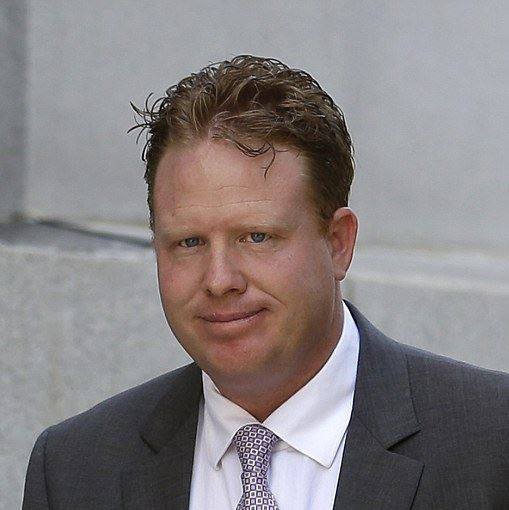
ST. GEORGE — After years of legal wrangling through federal court, St. George businessman Jeremy Johnson, convicted of fraud in 2016, will not challenge the Federal Election Commission’s allegations that he made illegal campaign contributions to Utah GOP Sen. Mike Lee and retired Democratic Senate Majority Leader Harry Reid.

According to a consent judgement filed in U.S. District Court Monday, 44-year-old Johnson used “straw” donors to contribute $50,000 to Lee’s Senate campaign, as well as another $20,000 to Reid’s reelection campaign in the 2009-10 election cycle, donations that Johnson would subsequently reimburse the donors in order to get around federal laws that limit individual donations to $2,400.
Moreover, the use of straw donors is also illegal under federal law, which prohibits a person from donating funds to a federal candidate through another person, or to allow their name to be used to contribute to a candidate, according to the consent judgement that is pending in federal court.
The judgement also states that John Swallow solicited Johnson for contributions to the Lee campaign, promising the defendant those contributions would help protect his businesses from federal prosecution and would help to advance Johnson’s many businesses that made tens of millions of dollars by processing financial transactions for online poker companies. The straw donors for Johnson’s unlawful contributions to the Lee and Reid campaigns included Johnson’s family members, employees, friends and business associates.
As an example, Johnson allegedly enlisted one of his business associates, Arvin Lee Black II, to act as a straw donor and to recruit other straw donors for the defendant’s illicit contributions, including Triple 7, a company Johnson owned, that issued a check for $14,400 to Sole Group LLC, a company owned or controlled by Black, which was the exact amount needed to fund six contributions of $2,400 each, the amount allowable during the 2009-10 election cycle.
While some of the checks bounced, according to the judgment, at least four of the contributions, totaling $9,600, were successfully made. Because of the amount of contributions that were in violation, $70,000, the FEC was seeking civil penalties of $840,000, money the agency agreed to forego once the consent judgement is signed due to the millions of dollars owed to the federal government and the defendant’s limited ability to earn a living.
According to court records, Swallow told Johnson, ‘I’m supporting you, and supporting your processing of poker. … You don’t have to worry about anything on the state level, but if the federal government comes after poker, you wanna head that off and this is how you do it.”

The FEC’s case against Swallow was largely based on statements Johnson made to federal and state agents under immunity during the criminal investigation against Swallow, who was later acquitted by a jury. The scandal would ultimately lead Swallow to resign as the attorney general after barely a year in office.
Johnson also sought Reid’s help in stopping a Federal Trade Commission investigation into his internet marketing company, iWorks, when Johnson’s company was being investigated by federal regulators for charging customers’ credit cards without authorization and other fraudulent practices.
Those efforts, however, were unsuccessful when, in 2015, the FTC sued Johnson and the U.S. Attorney’s Office later indicted him on fraud charges, and the following year he was convicted of eight counts of making false statements to a bank in connection with iWorks and was sentenced to 87 months in federal prison. Later that same year, a federal court in Nevada entered a $281 million judgement against Johnson, which was later suspended due to the defendant’s financial situation, and he was also assessed millions of dollars in unpaid federal income taxes by the IRS in 2016 as well.
After spending several years of an 11-year sentence in federal prison, Johnson was released in May to serve out the remainder of his prison term in home confinement as part of the government’s efforts to address the COVID-19 pandemic.
Copyright St. George News, SaintGeorgeUtah.com LLC, 2020, all rights reserved.